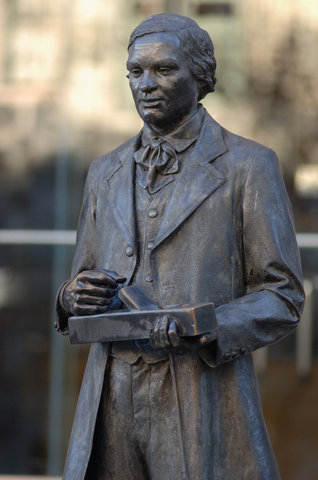
See also: Thomas Day, Dictionary of North Carolina Biography; Thomas Day from the NCpedia Student Collection
Thomas Day, a cabinetmaker by trade, is the most celebrated of North Carolina’s antebellum craftsmen. He was born in Dinwiddie County, Virginia, in 1801 to a family of free, landowning African Americans. His father, John Day, was a skilled cabinetmaker who plied other trades, as well, but always relied on woodworking to bring in money. Thomas and his brother John were well educated. John’s education, boarding with prominent whites and attending their schools, is documented in his later correspondence; it is assumed that Thomas was offered the same opportunities. Both of the Day sons followed in their father’s footsteps initially, learning the skills of a cabinetmaker. John Day eventually left the trade to study theology and later moved to Liberia, becoming one of its founders by signing their Declaration of Independence.
John Day moved to Warren County by 1820 and it is believed that Thomas was with him. Thomas Day and his brother had established themselves in the furniture business in Milton by 1823. Thomas Day became a prominent and well-respected citizen of the community. In response to an act of 1826 that prohibited free blacks from immigrating into the state, Milton’s white leaders petitioned the General Assembly in 1830 to allow Day’s bride, Aquilla Wilson, a free black person from Virginia, to join her husband in North Carolina. They would raise two sons and a daughter. In his almost forty years in Milton, Thomas Day built an extraordinary business, employing freedmen and enslaved people alike to craft stock lines of furniture and to fill custom orders for furniture and interior woodworking. By 1850, Day had the largest cabinetry shop in North Carolina. He is believed to have died in about 1861, after having suffered financial losses due to the national panic of 1857. The extant examples of his work are tangible evidence of Thomas Day’s accomplishments.